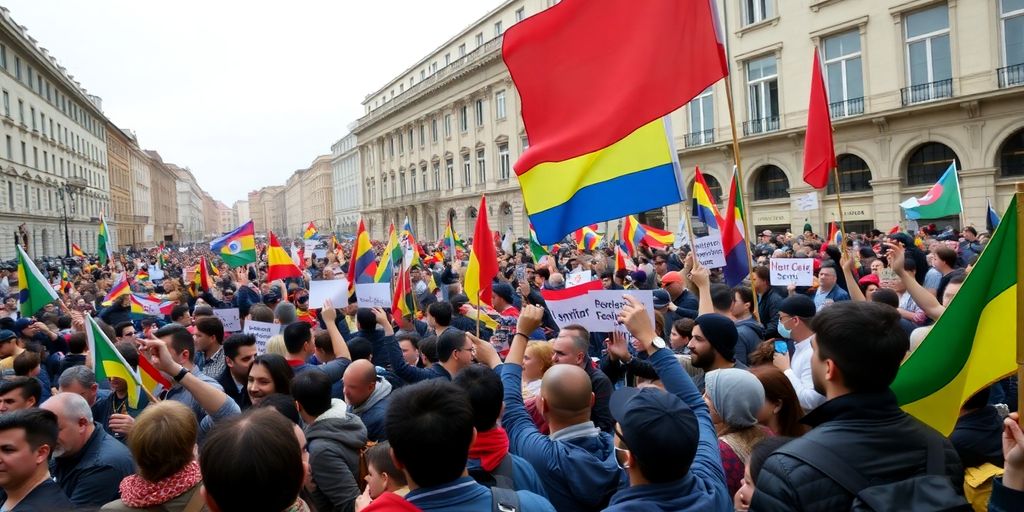In a significant turn of events, the Balkan region is witnessing a surge of anti-government protests, collectively dubbed the "Balkan Spring." Citizens across multiple countries, including Bosnia and Herzegovina, Greece, Hungary, Montenegro, North Macedonia, Romania, Serbia, Slovakia, and Turkey, are taking to the streets to voice their discontent with their governments. This movement has gained enough momentum to warrant its own Wikipedia page, highlighting its growing importance in the political landscape of the Balkans.
Key Takeaways
- Widespread protests are occurring in several Balkan countries.
- The movement is characterized by demands for political reform and accountability.
- The term "Balkan Spring" reflects a collective desire for change among citizens.
Background of the Protests
The protests began as a response to various issues, including economic hardship, corruption, and perceived government ineffectiveness. Citizens are increasingly frustrated with the lack of transparency and accountability from their leaders. The term "Balkan Spring" draws parallels to other historical movements for democracy and reform, suggesting a regional awakening among the populace.
Countries Involved
The protests have spread across several countries, each with its unique context:
- Bosnia and Herzegovina: Citizens are demanding an end to political corruption and better economic opportunities.
- Greece: Protests have erupted over austerity measures and government policies perceived as detrimental to the working class.
- Hungary: Demonstrators are rallying against authoritarian governance and media censorship.
- Montenegro: Calls for political reform and accountability are at the forefront of the protests.
- North Macedonia: Citizens are expressing dissatisfaction with the slow pace of EU integration and domestic reforms.
- Romania: Protests focus on anti-corruption measures and judicial independence.
- Serbia: Demonstrators are opposing government control over media and civil liberties.
- Slovakia: Citizens are advocating for transparency and accountability in government.
- Turkey: Protests are centered around issues of freedom of expression and political repression.
The Role of Social Media
Social media has played a crucial role in organizing and amplifying the protests. Platforms like Twitter and Facebook have allowed activists to share information, mobilize supporters, and document events in real-time. The hashtag #BalkanSpring has gained traction, uniting voices across borders and fostering a sense of solidarity among protesters.
International Response
The international community is closely monitoring the situation in the Balkans. Human rights organizations have expressed support for the protesters, emphasizing the importance of peaceful assembly and the right to express dissent. Some governments have issued statements urging their counterparts in the region to listen to the voices of their citizens and address their concerns.
Conclusion
The "Balkan Spring" represents a pivotal moment for the region, as citizens demand change and accountability from their governments. As protests continue to unfold, the outcome remains uncertain, but the collective voice of the people is undeniably growing stronger. The world watches as the Balkans navigate this critical juncture in their political history, with hopes for a more democratic and transparent future.






